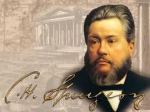Proverbs 3:5-12
God has created us with a longing to know that our presence in this world counts. He also designed us to find the fulfillment of that desire through His Son Jesus Christ.
Dependence on God is central to an abundant life. Trusting Him with all our heart means giving Him control over our families, finances, jobs, and everything else. Today’s passage emphasizes how essential trust is to a fruitful life: we are cautioned against being wise in our own eyes and warned—twice—not to lean on our own understanding (3:5, 7).
When facing decisions, we can be tempted to gather information and choose the answer that looks right. But we can’t know all the facts or predict with certainty how others will respond. God, however, is omniscient. He “reads” hearts and perceives every thought; no aspect of our life escapes His notice (1 Chron. 28:9; Ps. 11:4), and He cares about everyone. That’s why He alone knows which decision is best for each situation.
The abundant life also involves acknowledging the Lord in all we do. Speaking about Him is just part of what it means to give Him recognition. As His children, we are to have a marked resemblance to our heavenly Father—in thoughts, attitudes, and actions. Our priorities are to reflect His, and our plans should fit with His purposes.
Life becomes fruitful as we surrender ourselves to the Lord and carry out His will. By allowing His Spirit to live through us (Gal. 2:20), we will find our lives characterized by significance and satisfaction.










